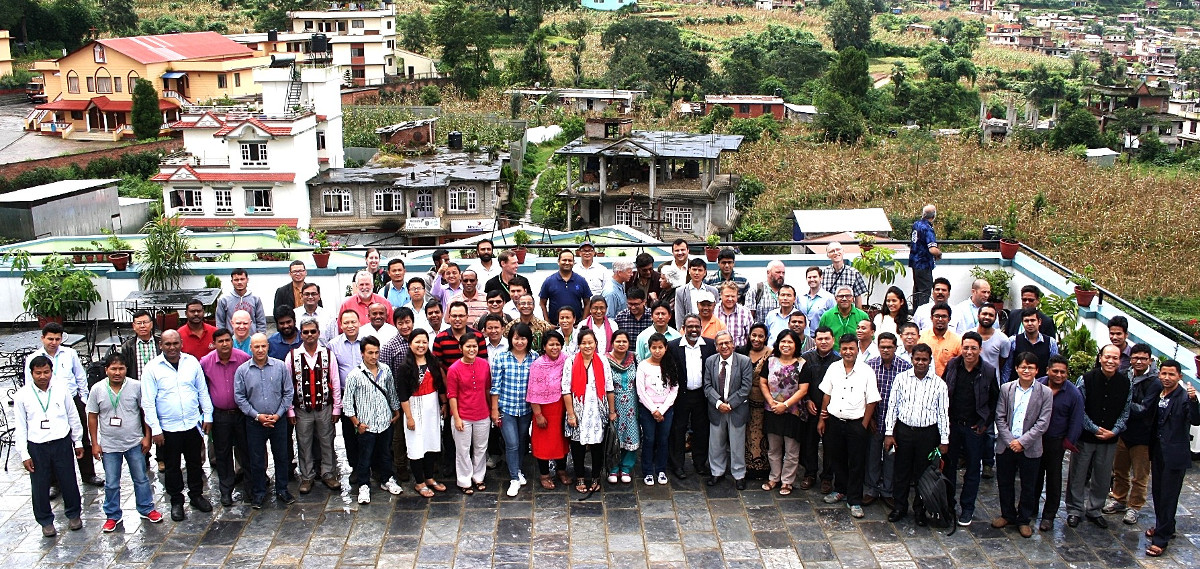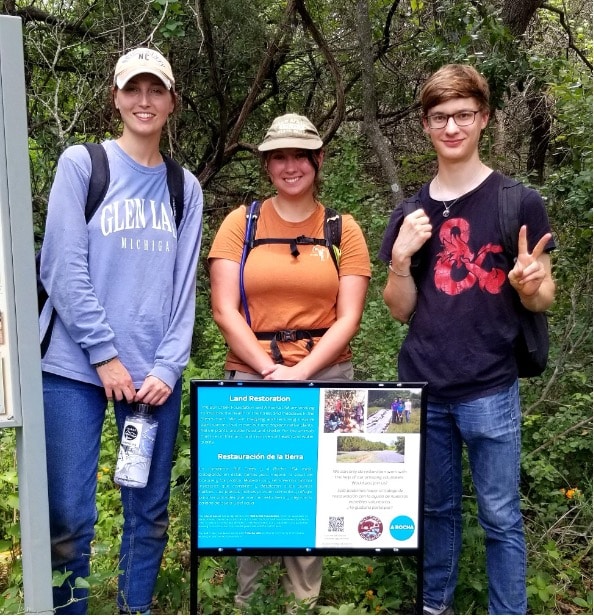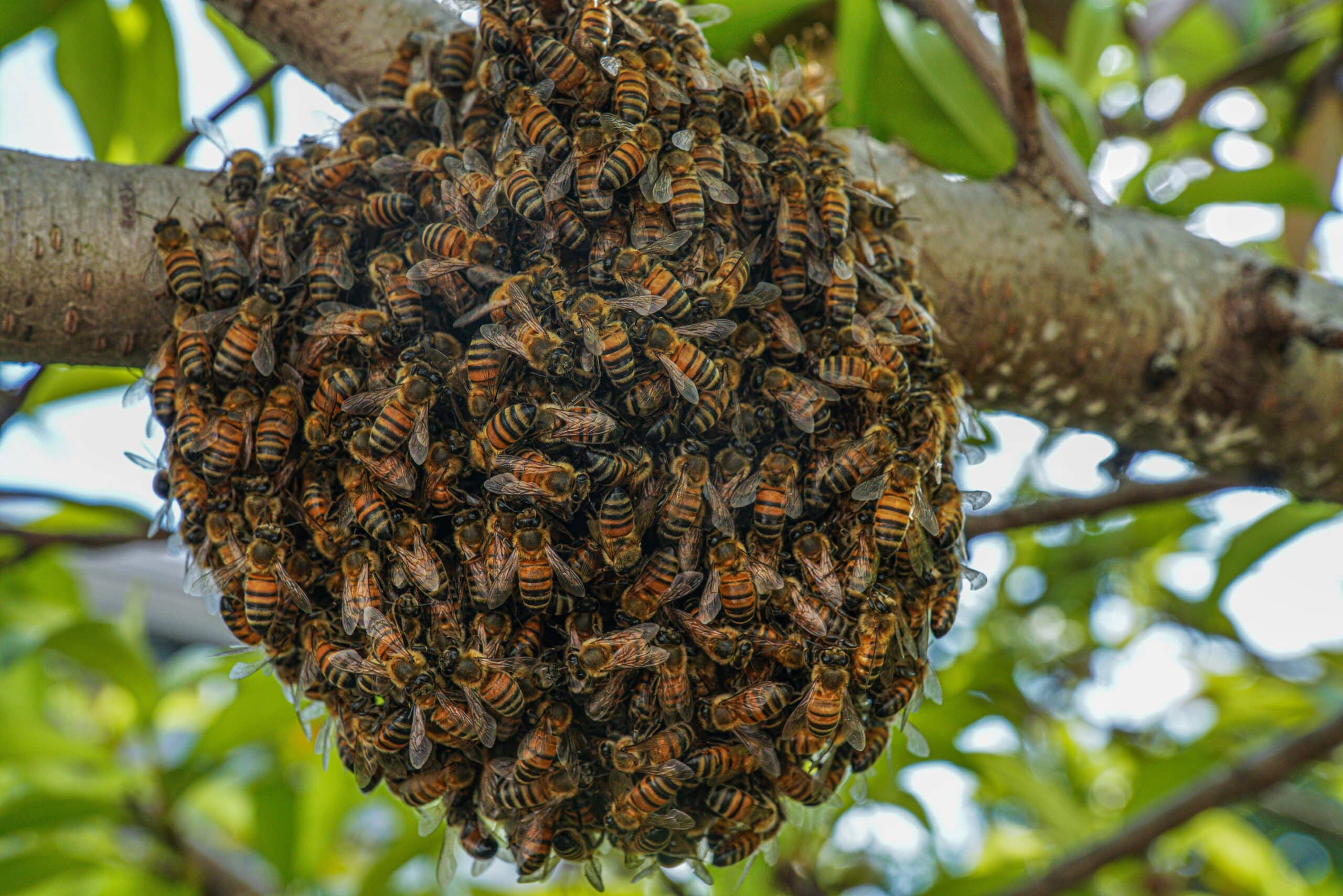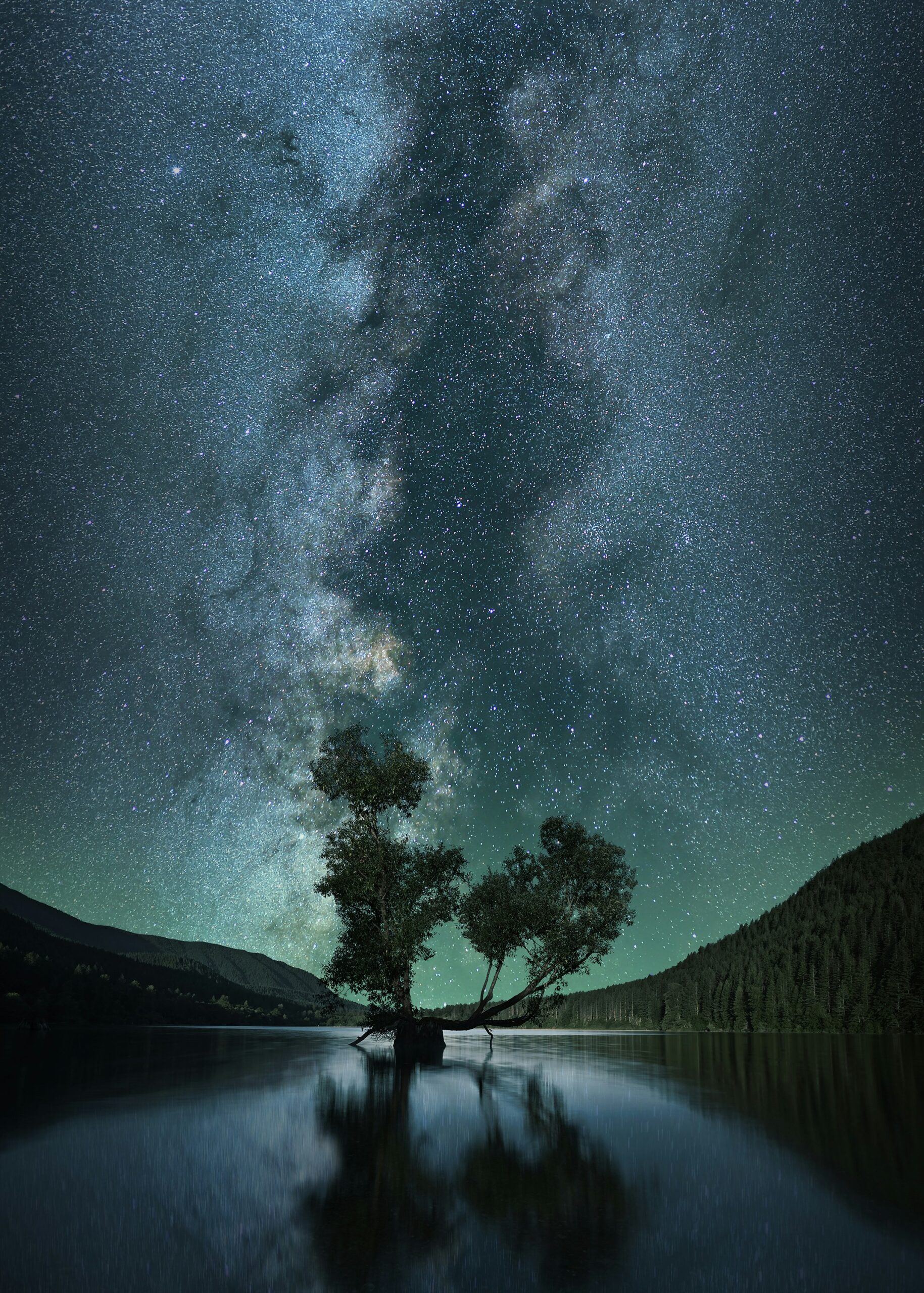Obsessed with beginnings and endings
Recently, I was in Kathmandu, speaking on creation care to a group of about 90 Christian leaders from across Nepal, India, Pakistan, Sri Lanka and Bangladesh. They were really receptive… until I got to God’s future plans for creation (eschatology, if you like jargon). Surely we’re all going to heaven? What about the Rapture? Won’t there be a new creation? Won’t the earth be destroyed by fire? There were so many questions that we had to find extra space in the programme for a 90 minute Q&A session on creation’s final destiny and its implications for creation care.

The group gathered at the creation care conference in Kathmandu
This got me reflecting about how toxic Western theologies (owing more to consumerism and individualism than scripture) have been exported to so many parts of the world (*), and more deeply, about why some Christians spend so much time and energy on beginnings and endings. So many of the tired old questions which A Rocha repeatedly faces relate to ‘How the world began’ (creation or evolution) and ‘How the world will finish up’ (destruction or renewal).
Yet the Bible actually has precious little to say about the details of creation or God’s final plans, and perhaps that’s deliberate. Biblical writers weren’t very interested in knowing how the earth was made or how God would finally draw things together. They weren’t speculative philosophers, rationalist historians or modern scientists. They were farmers and poets and prophets, rooted in the realities of daily life. They were, and I suggest we should be, much more interested in how we should live now in the light of God’s plans and purposes. I suggest that the questions which Genesis 1–3 and Revelation are focussed on (as well as bits of Daniel, 2 Peter and other ‘end times’ passages) include these:
- What is the character of the God who holds creation’s destiny?
- What does it mean to be human within a world of many creatures and one God?
- How are we meant to live within the light of God’s plans for the world?
- How does God deal with, and how can we live with, the reality of suffering, death and evil?
These are primarily moral rather than philosophical questions. It’s interesting that Jesus’ parables in Matthew 25 focus less on the detail of God’s ultimate plans and more on how we should be living in the light of them. Are we ready for the bridegroom’s return (1–13)? Have we been good stewards of what’s entrusted to us (14–30)? Are we treating the most vulnerable in a way that honours God’s image in them (31–46)? Superficially these don’t appear to have ecological implications, but actually they all do. Keeping our lamps lit is about living in the light of Jesus’ Lordship over all creation. If creation is made by and for, and holds together in, Jesus (Colossians 1:15–17) then enabling nature to flourish shines a light on Jesus’ Lordship. The ‘talents’ in 14–30 are actually the material wealth of creation, whether in economic or tangible form, and we are held accountable for our stewardship of creation’s resources. In the third parable, the hungry and thirsty and foreigners in whom we should see Christ today, are often the victims of climate change, water and food insecurity, deforestation and desertification. We could even, perhaps, see ‘the least of these’ as including our fellow creatures, the species decimated and driven towards extinction by our abuse of God’s good creation.
So next time you’re diverted by questions about how the earth was made or how it will all end up, stop and challenge the questioner. The Bible seems pretty disinterested in such speculative questions, and in my experience they’re often an excuse for ignoring the imperative to change our behaviour. Trying to argue with strongly held creationist or dispensationalist views rarely leads anywhere. Instead, change the focus. Jesus often replied to unhelpful questions by asking a different question. Try asking, ‘If creation exists for Jesus, how would he want us to treat it?’, or ‘What does it mean practically to seek God’s Kingdom on earth, as in heaven?’, or even, ‘What have you done for the least of God’s creatures?’ In Nepal, we found that changing the focus from details of end-times theology to living out the Lordship of Christ here and now, tangibly changed the atmosphere.
Jesus is the same yesterday, today and forever, but our job is to live as if he is Lord, today, in the place he’s planted us. The rest we can leave up to God to sort out!
* See my earlier blog What’s the future for planet Earth? and in more depth my chapter on ‘Jesus is Lord … of all?’ Evangelicals, Earthcare, and the Scope of the Gospel in Creation Care in Christian Mission (ed. K Kaoma, Regnum Books, 2015)
We are happy for our blogs to be used by third parties on condition that the author is cited and A Rocha International, arocha.org, is credited as the original source. We would be grateful if you could let us know if you have used our material, by emailing [email protected].




Hello Dave, I couldn’t agree more. Here’s a nice Ken Costa quote to support your point: ‘The past and future are persuasive, but the present is compelling.’
Thanks for sharing your thoughts on this, Dave. I have also experienced the results of exporting certain Western theologies which distract from the importance of living obediently and faithfully in the here and now. This is especially so in regard to matters of caring for God’s creation. Unfortunately I could not attend the Nepal conference but, based on my experience on the Sub-Continent, I can certainly appreciate the need for a 90 minute Q & A session!
Thanks Dave. As ever, helpful and so germane to present praxis of discussion. In addition I find focussing on what to do today saves despair and hopelessness creeping in.